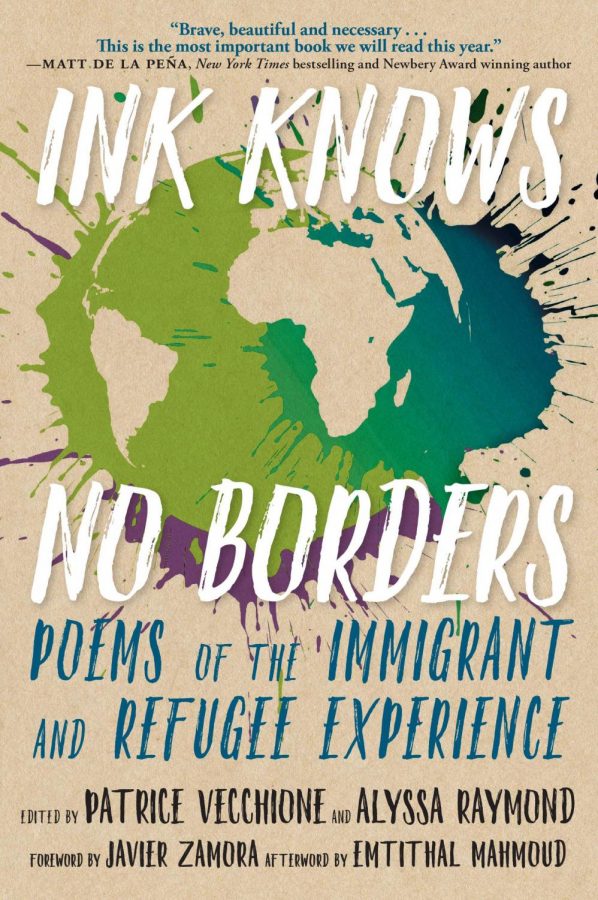The Foreword Book Club: Ink Knows No Borders
Ink Knows No Borders, edited by Patrice Vecchione and Alyssa Raymond
If you have recently conversed with me, chances are you had to endure my rambling about how much I adore this book, or my hopefully fruitful attempt to get you to read it. I promise this is for a good reason. A precise poetry collection 50+ immigrants and refugees, Ink Knows No Borders is the very manifestation of the most gripping themes of the human experience, coupled with the art of putting pen to paper. Having said this, it is one of those books in which the cover and first impression doesn’t do it justice. I can’t imagine that I’m the only one who looks at a piece of poetry and recalls either the tedious nature of deciphering Shakespeare or the juvenile repetition of Dr. Seuss. But this particular collection is full of pleasant surprises. The authors are not pretentious in their creations, but extremely unapologetic with their messages. The reason I love this book is because its purpose is not merely for the writers to get their thoughts out of their heads, but to actually change the way other people think. And in this endeavor, they are entirely successful.
Firstly, if you have read the first edition of The Foreword Book Club, you might recall that one of the ways I identify truly exceptional writing is the presence of inspiring diction: the kind of writing that stops you dead in your tracks and causes you to reflect. Patrice Vecchione and Alyssa Raymond’s poetry collection is certainly chock-full of these magical strings of words. One of the most compelling lines I remember is “What is it, to remember nothing, of what one loved?” in Chen Chen’s poem “First Light.” Chen describes the utterly shattering feeling of never really feeling connected with his origins, the same part of his identity that people seem so quick to judge him for. His writing seems to label it as a deeply moving idea that is incomprehensible to those that will never have such an experience, and his passion is vividly obvious.
But the writing in Ink Knows No Borders is not exclusively about the sometimes heartbreaking experiences of being an immigrant. Marianne Chen writes about strength in “When the Man At the Party Said He Wanted to Own A Filipino.” The title alone is an attention grabber, and any work with such a jarring title inevitably demands to be swallowed in the reader’s soul. She wrote, “We are Cornioles,/ who, after being eaten alive by a whale, enters the whale’s body/ and takes small, tender bites of the whale’s enormous heart.” With such a brilliantly vibrant metaphor, few can’t dispute Chen’s message. She alludes to her experiences which illustrate that the world seems to think they have a right to own her, to mold her to their liking because they underestimate those different than them. Despite this, she describes an immeasurable strength in those who forever face adversity.
If you never took much of a liking to poetry, I challenge you to prove yourself wrong by reading this book. The thing that these poems have in common—other than the theme of immigrant and refugee experience—is that they display such an intimacy with the reader that anyone will find themselves drawn to diving in more. It is also not at all a challenging read. All of these things make it incredibly inviting. All in all, Ink Knows No Borders is a must-read that is certain to alter your perspective and broaden your view of the vast spectrum of the human experience.



















